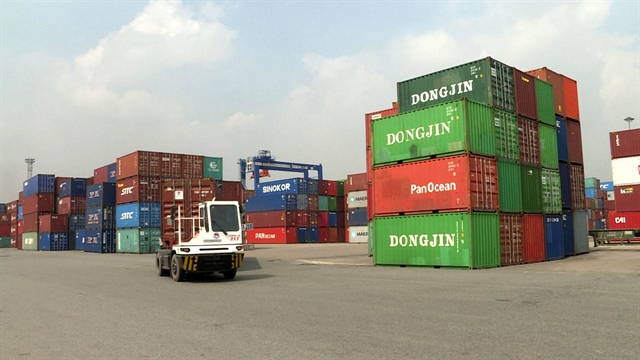 Society
Society


|
| Tân Cảng-Cát Lái Port in HCM City’s District 2. The logistics sector needs qualified human resources to meet automation and ecommerce requirements. — VNS Photo Ngọc Diệp |
HCM CITY — The current logistics labour force needs to adapt to fast-changing automation and ecommerce requirements, experts said at a dialogue organised by the Việt Nam Chamber of Commerce and Industry (VCCI) and Australia Aid on Friday in HCM City.
Speaking at the event, Nguyễn Ngọc Tú, chief innovation officer at SmartLog Logistics Solution Corporation, said the logistics industry is the backbone of trade. Good logistics can lower trade costs and help countries compete globally.
For developing countries, getting logistics right means improving their infrastructure, customs procedures and regulations, he added.
Việt Nam’s position in the Logistics Performance Index (LPI) in 2018 jumped to 39th among 160 surveyed countries, according to the latest report from the World Bank (WB).
Logistics costs in Việt Nam account for nearly 21 per cent of the country’s Gross Domestic Product (GDP), twice as much as some developed economies.
“Using modern technological solutions is necessary to reduce logistics costs and make the local logistics industry more globally competitive,” Tú said.
Strengthening training and developing logistics human resources are also key to developing the country’s logistics sector.
“Students and job seekers in logistics should improve their knowledge and skills to meet the requirements of digitisation and the Fourth Industrial Revolution, especially analytical skills,” Tú said.
Nguyễn Vũ Đan Khuyên, business solution manager at Gemadept Logistics Corporation, said during nearly 30 years of operation, her company’s recruitment demand had changed significantly because of technology advances.
“Businesses and workers in the logistics industry should keep up with modern trends and meet the demands of the logistics market,” she said.
With ongoing automation and e-commerce trends, logistics jobs are not only for male workers, she said.
“Both male and female workers have to know how to promote their strength and limit their weaknesses if they want to keep their jobs,” Khuyên said.
Students in logistics should also keep up to date about businesses’ recruitment demand so they can meet their requirements.
Problem-solving skills and systems thinking are important factors that will help workers adapt to the rapid changes in the logistics industry, she said. — VNS




